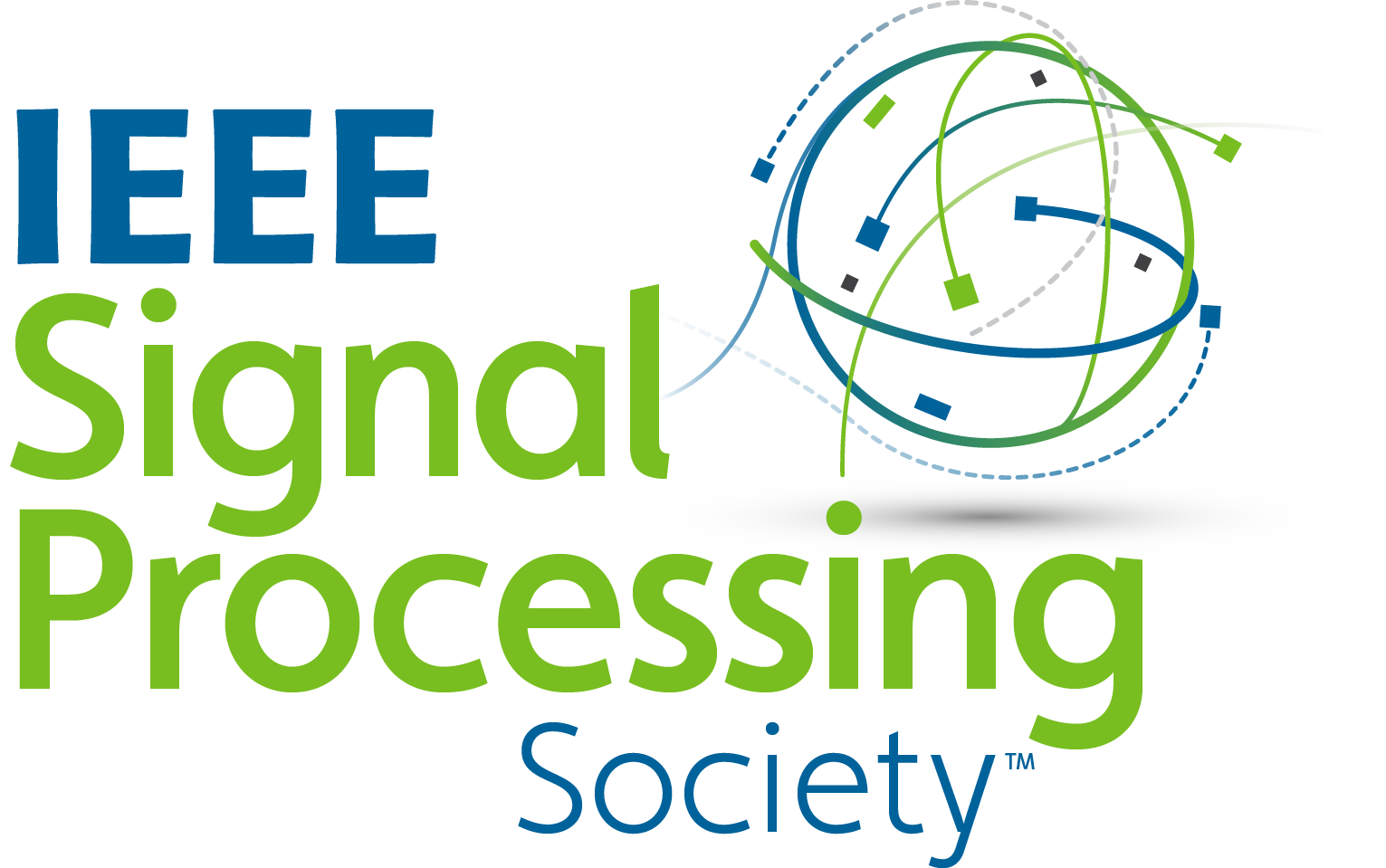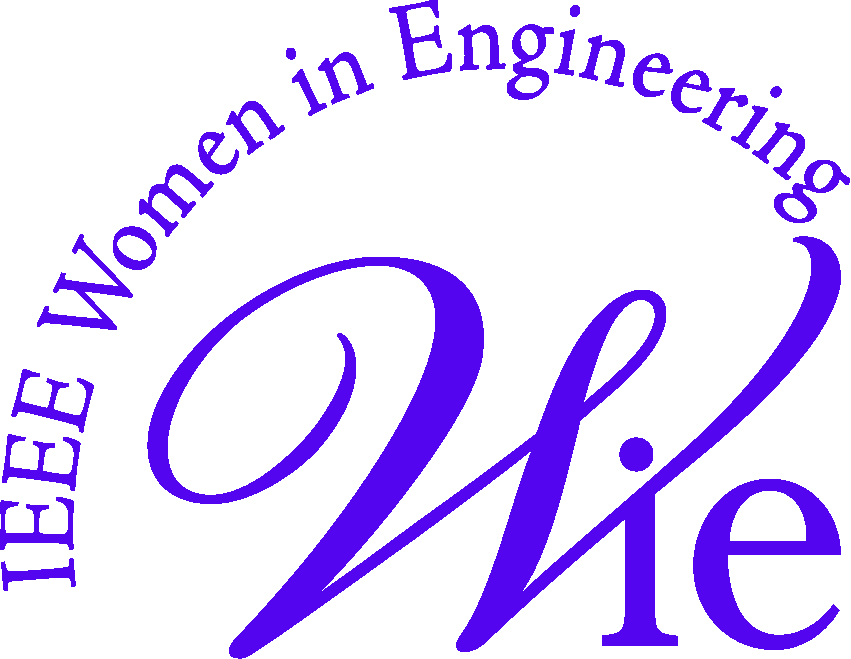IEEE WIE Forum Overview
The IEEE WIE Forum is organized by the IEEE UAE Section's Signal Processing Society (SPS) Chapter and the IEEE Women in Engineering (WIE) Affinity Group. This forum brings together distinguished speakers and experts from various engineering disciplines to discuss key topics related to implicit bias in engineering environments, advancements in radar-communication systems, and fostering diversity and inclusion. Through keynote speeches, panel discussions, and networking opportunities, the forum aims to create an inclusive platform for knowledge exchange and professional development.
Event Details
Date: Wednesday, November 13, 2024
Program
08:30 – 8:45: Welcome Address
Dr. Maisam Wahbah
Assistant Professor, University of Dubai, UAE
Chair, IEEE UAE Section Awards and Recognition Committee
Dr. Diana W. Dawoud
Assistant Professor, University of Dubai, UAE
Vice Chair, IEEE UAE Section Women in Engineering Affinity Group
Chair, IEEE UAE Section Communications Society and Signal Processing Society Joint Chapter
08:45 – 9:30: Keynote Speech 1
Prof. Murat Uysal
Professor, New York University Abu Dhabi (NYUAD), UAE
Topic: Visible Light Communications for Next Generation Wireless Networks
09:30 – 10:15: Keynote Speech 2
Prof. Athina Petropulu
Distinguished Professor, Rutgers University, USA
Topic: Physical Layer Security for Dual-function Radar-Communication Systems
10:15 – 10:30: Networking and Coffee Break
10:30 – 11:25: IEEE WIE Forum Panel Discussion
Topic: Overcoming Implicit Bias in Engineering Environments
Moderator: Dr. Sabina Abdul Hadi
Associate Professor, University of Dubai, UAE
Vice Chair, IEEE UAE Section CASS/SSCS/PELS Joint Chapters
Panelists:
Prof. Athina Petropulu, Distinguished Professor, Rutgers University, USA
Eng. Shaimaa Al-Hefaity, Head of Digital Transformation, Ministry of Industry and Advanced Technology, UAE
11:25 – 11:30: IEEE WIE Forum Closing Remarks and Group Picture
Keynote Speakers
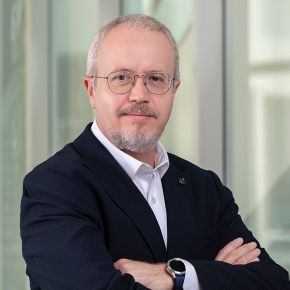
Topic: Visible Light Communications for Next Generation Wireless Networks
Prof. Murat Uysal
Professor, New York University Abu Dhabi (NYUAD), UAE
Abstract
Visible Light Communication (VLC) is based on the principle of modulating the intensity of light-emitting diodes (LEDs) to enable high data rate transmission over the unregulated optical spectrum. It is considered a powerful complement to radio frequency-based solutions in dense user environments and a viable alternative in locations where radio waves may be restricted or prohibited. In this talk, we will first provide an overview of this promising technology, highlighting its unique advantages and potential applications. We will then explain how VLC channels can be realistically modeled and introduce key physical layer technologies that enable the development of high-speed VLC systems. Although first-generation VLC modems have successfully demonstrated the feasibility of indoor light-based wireless networks, significant advancements are still needed to position VLC as an integral part of 6G and beyond networks. Toward this direction, we will discuss the current challenges and future research directions.
Speaker Biography
Murat Uysal received BSc and MSc degrees in electronics and communication engineering from Istanbul Technical University, Turkey, in 1995 and 1998, respectively, and his PhD degree in electrical engineering from Texas A&M University, College Station, USA, in 2001. Dr. Uysal began his academic career as an Assistant Professor at the University of Waterloo, Canada in 2002 and was promoted to Associate Professor with tenure in 2007. In 2011, he joined Ozyegin University, Turkey where he served as the Department Chair of Electrical and Electronics Engineering and the Founding Director of Center of Excellence in Optical Wireless Communication Technologies (OKATEM). In September 2023, he joined New York University Abu Dhabi as a Professor of Electrical Engineering. Dr. Uysal’s research interests are in the broad area of communication theory with a particular emphasis on the physical layer aspects of wireless communication systems in radio and optical frequency bands. On these topics, he has authored some 450 journal and conference papers and received more than 22.000 citations with an h-index of 66. Uysal is an IEEE Fellow and the former Chair of the IEEE Turkey Section. He currently serves as an Area Editor for IEEE Transactions on Communications. Previously, he served as an Editor for IEEE Transactions on Communications, IEEE Transactions on Wireless Communications, IEEE Transactions on Vehicular Technology, and IEEE Communications Letters. He was involved in the organization of several IEEE conferences at various levels. In particular, he served as the Technical Program Committee Chair of major IEEE conferences, including WCNC 2014, PIMRC 2019, and VTC-Fall 2019. Between 2011 and 2015, he was the Chair of EU COST Action OPTICWISE, a high-profile consolidated European scientific platform that brought together more than 150 researchers in the research area of optical wireless communication. Dr. Uysal’s major distinctions include NSERC Discovery Accelerator Award in 2008, University of Waterloo Engineering Research Excellence Award in 2010, Turkish Academy of Sciences Distinguished Young Scientist Award in 2011, Ozyegin University Outstanding Researcher Award in 2014, National Instruments Engineering Impact Award in 2017, Elginkan Foundation Technology Award in 2018, IEEE Communications Society Best Survey Paper Award in 2019, IEEE Turkey Section Outstanding Service Award in 2021, Mustafa Prize and Tubitak Science Award in 2023.
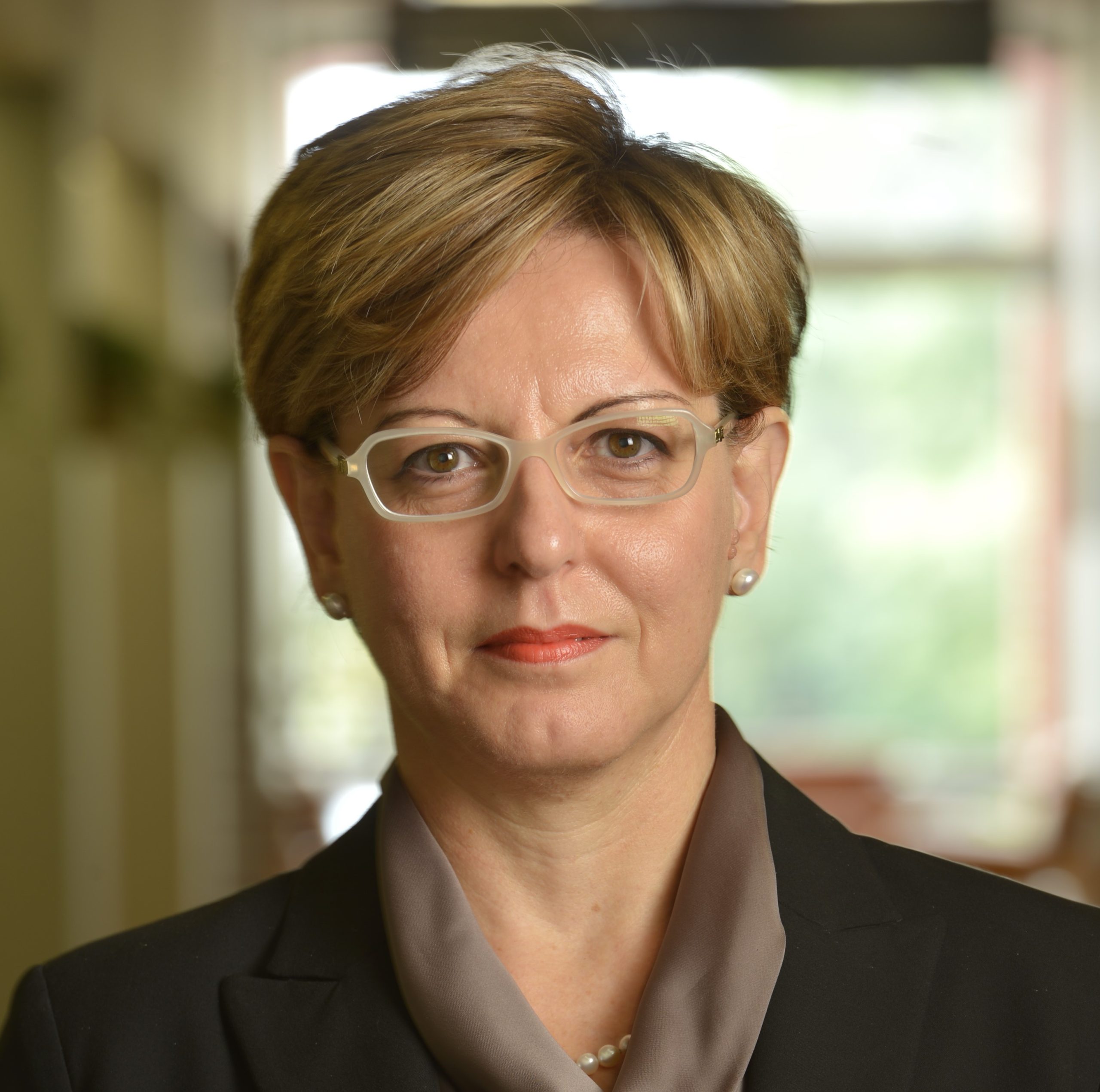
Topic: Physical Layer Security for Dual-function Radar-Communication Systems
Prof. Athina Petropulu
Distinguished Professor, Rutgers University, USA
Abstract
Dual-function radar-communication (DFRC) systems are integrated sensing-communication systems that use the same waveform for simultaneously probing the surroundings and communicating with other equipment. DFRC systems offer high spectral, hardware, and power efficiency, and as such are prime candidates for 6G wireless systems. Before the DFRC promise is realized, several issues need to be addressed. One of those issues is security. By embedding communication information in the probing waveform, DFRC systems are vulnerable to eavesdropping by the targets. In this talk, we will present a novel physical layer security (PLS) system design for optimizing the communication secrecy rate while maintaining sufficient power in the target echoes to ensure high target sensing performance. We will also present a novel Directional Modulation approach for achieving PLS via Time Modulated arrays, via which, the DFRC system is designed to deliver the signal intact to the legitimate destination and scrambled in all other directions. We will examine the possibility of the target/eavesdropper defying the proposed security measures and investigate additional protection measures.
Speaker Biography
Athina P. Petropulu is a distinguished Professor at the Electrical and Computer Engineering (ECE) Department at Rutgers, having served as chair of the department during 2010-2016. Prior to joining Rutgers, she was a Professor of ECE at Drexel University (1992-2010). She held Visiting Scholar appointments at SUPELEC, Universite’ Paris Sud, Princeton University, and University of Southern California. Dr. Petropulu's research interests span statistical signal processing, wireless communications, signal processing in networking, physical layer security, and radar signal processing. Dr. Petropulu is a Fellow of IEEE and the American Association for the Advancement of Science (AAAS), and recipient of the 1995 Presidential Faculty Fellow Award given by the US National Science Foundation and the White House. She has played key roles in her professional society, including serving as 2022-2023 President of the IEEE Signal Processing Society, Editor-in-Chief of the IEEE Transactions on Signal Processing (2009-2011), and IEEE Signal Processing Society Vice President-Conferences (2006-2008). She was Technical Program Co-Chair of the 2023 IEEE ICASSP, General Co-Chair of the 2018 IEEE SPAWC, and General Chair of the 2005 ICASSP. She was a Distinguished Lecturer for the Signal Processing Society and the IEEE Aerospace & Electronics Systems Society. For her service, Dr. Petropulu has received the 2012 IEEE Signal Processing Society Meritorious Service Award. She is also co-recipient of the 2005 IEEE Signal Processing Magazine Best Paper Award, the 2020 IEEE Signal Processing Society Young Author Best Paper Award (B. Li), the 2021 IEEE Signal Processing Society Young Author Best Paper Award (F. Liu), the 2021 Barry Carlton Best Paper Award by IEEE Aerospace and Electronic Systems Society, and the 2023 Stephen O. Rice Prize Best Paper Award by the IEEE Communications Society.
Panel Discussion
Topic: Overcoming Implicit Bias in Engineering Environments
Moderator:

Dr. Sabina Abdul Hadi
Associate Professor, University of Dubai, UAE
Vice Chair, IEEE UAE Section CASS/SSCS/PELS Joint Chapters
Panelists:

Prof. Athina Petropulu
Distinguished Professor,
Rutgers University, USA
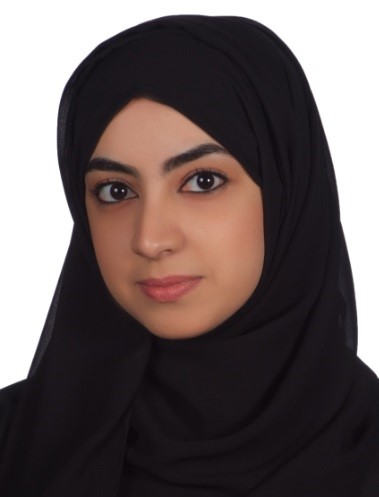
Eng. Shaimaa Al-Hefaity
Head of Digital Transformation, Ministry of
Industry and Advanced Technology, UAE
Eng. Shaimaa Al-Hefaity
Shaimaa Al-Hefaity is the Head of Digital Transformation at MoIAT, focused on optimizing digital tools to enhance efficiency and user experiences. With a background in telecommunications and computer engineeing , I lead innovative projects such as IoT, AI and 5G initiatives. I enjoy collaborating with government and private sector top digital players to drive impactful solutions. My goal is to help shape a vibrant digital future for the UAE, making technology accessible for everyone
Dr. Sabina Abdul Hadi
Sabina Abdul Hadi is an Associate Professor of Electrical Engineering at College of Engineering at IT at University of Dubai. Dr. Abdul Hadi received her PhD degree in Interdisciplinary Engineering from Masdar Institute of Science and Technology, Abu Dhabi, United Arab Emirates in 2016. Her PhD work focused on modeling, fabrication and testing of III-V/Si multi-junction solar cells. From 2016 to 2018, Dr. Abdul Hadi worked as a postdoctoral fellow at Khalifa University on different projects, including solar cells and memristor-based sensing applications and has joined University of Dubai in 2018. Dr. Abdul Hadi has co-authored more than 40 conference proceedings and scientific peer-reviewed journals and co-authored a book. Her research interests include semiconductor physics, device modeling and fabrication, nanotechnology, memristor devices and their applications, thin films and anti-reflective coating materials, emerging photovoltaic technologies, semiconductor device characterization, among others. Dr. Abdul Hadi is currently a vice-chair of IEEE CASS/ SSCS/ PELS - UAE Section and has served as a chair of IEEE PES - UAE Section from 2020-2022. Dr. Abdul Hadi has participated as a technical committee member in number of IEEE conferences, such as PVSC USA, ICSPIS, ICECS etc..
Master of Ceremony
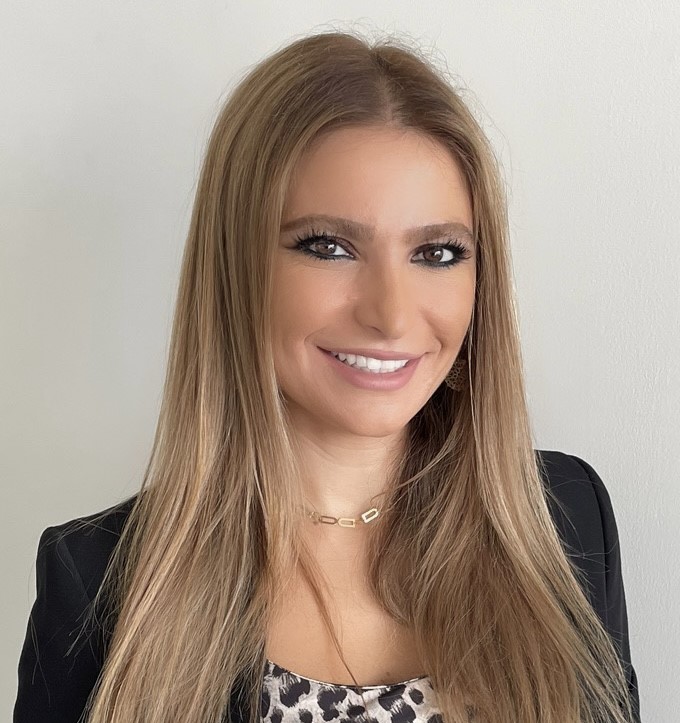
Dr. Christine Markarian
Associate Professor, University of Dubai, UAE
Dr. Christine Markarian
Dr. Christine Markarian holds a B.S. in Mathematics from Haigazian University, an M.S. in Computer Science from Lebanese American University, and a Ph.D. in Theoretical Computer Science from the University of Paderborn. An associated professor at the University of Dubai, she specializes in online algorithms, cybersecurity, and cloud computing. Dr. Markarian has published extensively, presented at major conferences, and collaborates with international universities on research projects in algorithm design and optimization.
IEEE WIE Forum Chairs
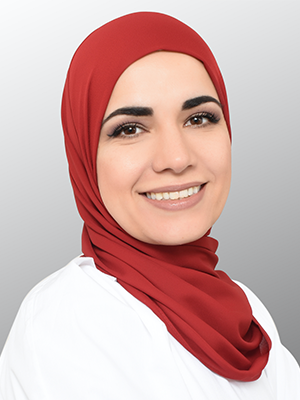
Dr. Diana W. Dawoud
Assistant Professor, University of Dubai, UAE
Vice Chair, IEEE UAE Section WIE Affinity Group
Chair, IEEE UAE Section Communications Society
and Signal Processing Society Joint Chapter

Dr. Maisam Wahbah
Assistant Professor, University of Dubai, UAE
Chair, IEEE UAE Section Awards
and Recognition Committee
Dr. Diana W. Dawoud
Dr. Diana W. Dawoud, Senior Member, IEEE, a Ph.D. alumna of the Institute for Communication Systems (5G Innovation Center) of the University of Surrey, specializes in optical communication, signal processing, and IoT systems. She holds a Master's degree in electrical engineering from the University of Jordan, where she also completed her Bachelor's studies. After four years of teaching at Khalifa University and completing her Ph.D., she joined the University of Dubai as an assistant professor. Her contribution to her field is multifaceted; she reviews for top-tier journals and conferences such as GLOBECOM and ICC, organizes scholarly workshops such as the Optical Wireless Communications Workshop, held in parallel with IEEE WCNC in 2023, 2024, and 2025, as well as Globecom'24. Dawoud's innovative research, including a US patent in optical communication and publications in esteemed journals such as IEEE Transactions on Communication, highlights her scholarly impact. Her pioneering work in LiFi-enabled autonomous driving solutions garnered recognition as finalists in the Dubai World Challenge for self-driving vehicles and was awarded at the 4th Forum for Women in Research "QUWA" in 2023 at Sharjah University.
Dr. Maisam Wahbah
Dr. Maisam Wahbah received the Ph.D. degree in Electrical Engineering and Computer Science from Khalifa University (KU), UAE. In 2019, she joined the Healthcare Engineering Innovation Center at the Department of Biomedical Engineering at KU as a Post-Doctoral Fellow. Dr. Wahbah is currently an assistant professor at the College of Engineering and Information Technology, University of Dubai, UAE. Her research interests include signal processing, nonparametric statistics, AI, circuits and systems. She is the IEEE UAE Section Awards and Recognition Committee Chair, Co-Chair of the IEEE Women in Engineering International Leadership Summit (WIE ILS) (Dubai, April 25, 2024), and has successfully secured multiple funds for hosting international technical and professional events. Her exceptional performance and contributions undoubtedly reflect her outstanding commitment and dedication to excellence.
Sponsors


